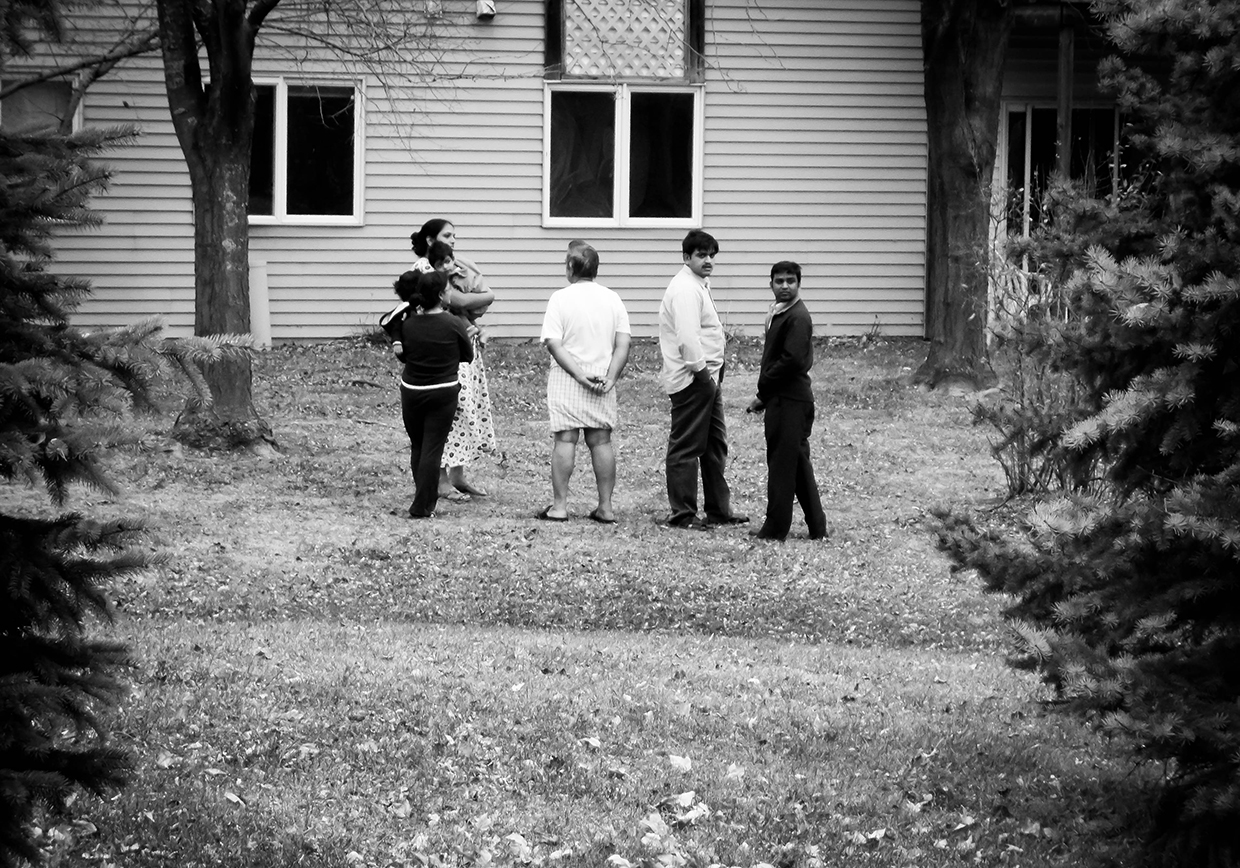Even as "living in community" and "intentionality" become buzzwords among Christians, our lives seem to be getting busier than ever and our packed schedules—and misplaced priorities—can keep us from taking the time to get to know one another.
Many of us build barriers that prevent us from reaching out to the people that we encounter on a daily basis, those that live right next to us, and even the parents of those kids that play with our kids. Barely half of us know our neighbors' names.
It's not that we simply don't care; in fact, we are quick to respond to someone in need, we bring food, offer money or a ride to work, and even pet sit. But that's only as long as it is just temporary assistance, something we can do once, or only when it is really needed. We like to feel that have contributed and have somehow acted "Christianly" enough.
It can be uncomfortable to suggest that that's not enough, that we are called to much closer community and much greater sacrifice than we're allowing for right now. A couple of books I've recently read (and asked my students at Oklahoma Baptist Unversity to read) propose these questions: Do we have a responsibility, as believers, to build more genuine relationships with our neighbors? And is part of the Christian life being intentional about getting to know and care for our immigrant brothers and sisters in particular?
In The Art of Neighboring: Building Genuine Relationships Right Outside our Door and Welcoming the Stranger: Justice, Compassion, & Truth in the Immigration Debate, the authors propose that living in isolation from our immediate neighbors and keeping a distance from the immigrant community often lead to fear and misunderstanding, and most importantly, a missed opportunity to care and love for others just as God has loved us.
In The Art of Neighboring, pastor Jay Pathak and nonprofit director Dave Runyon tell us that neighboring is about "empowering people and breaking down walls. It's about doing something together for the common good." In essence, each of us can better our communities and advance the Kingdom by being engaged and involved in the lives of others via service, friendship, and daily interactions with one another.
While Welcoming the Stranger focuses on our relationships with and understanding of immigrants, both books point to fear as the main obstacle hindering our developing real relationships. In the book, the authors—World Relief's Matthew Soerens and Jenny Hwang Yang—give examples of how listening to the stories of others helps clarify, connect, and erase misunderstandings we might have about them.
Even more, listening to stories has encouraged evangelical leaders to be at the forefront of immigration reform to push for a path toward legal status for undocumented immigrants. The Pray4Reform initiative is pushing us to view immigrants with biblical values of compassion, justice, and hospitality.
As a storyteller and listener, this speaks to my heart deeply. In the service-learning classes I teach, both in Ohio and in Oklahoma, at Christian and secular universities, I often see my students change when they read personal narratives about a particular group we are studying, and when they get to work alongside people who are often very different than themselves. Welcoming The Stranger was particularly helpful for Christian students, because it insists that we make an informed opinion, based on Scripture, about our responsibilities to care for immigrants. The transformation of thought and heart starts when we begin to see our neighbors, classmates, and co-workers as real people, as our brothers and sisters.
Living in community means that we remember that there is one church "one Body, one Spirit, one faith, one baptism, one God and Father of all" (Eph. 4:4-6) and that "If one part suffers, every part suffers with it" (1 Cor. 12:26). When we think about social injustices and needs in our community—the neglect of children, a lonely elderly person, domestic violence, even an unfair immigration policy—loving our neighbors will lead us into advocacy, because we can no longer drive up the driveway and close our garage door, close our office door or put our earphones on; we have become a part of their lives.
Living in community offers the opportunity to truly engage in the lives of others, to care for others and to let others care for us. Living in community is not charity; while we can provide a basic need for a neighbor—both our actual neighbors and the people with whom we spend most of our time such as co-workers and classmates—we will not truly build honest relationships if we only remain on the sidelines. The Bible tells us, "Do not forget to show hospitality to strangers, for by so doing some people have shown hospitality to angels without knowing it" (Heb. 13:2) Not only are we in the position to offer respite for our neighbors in need, Scripture tells us to look at our neighbors as blessings in our own lives.
So the answer to the uncomfortable question is, yes. We have a responsibility to care for others, to learn their stories and share ours, and have meaningful conversations; in doing so, not only do we overcome fears and clear misunderstandings, we are obedient to God's Great Commandment: to love our neighbor as ourselves.
Elena Foulis teaches at The Ohio State University, loves to read and write book reviews, and is a member of Vineyard Christian Fellowship in Columbus, Ohio.









